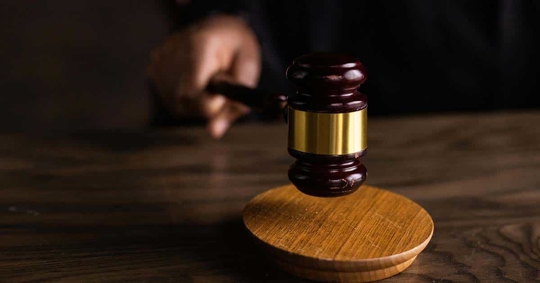No. If your divorce proceeding goes to trial in both Maryland and the District of Columbia, the trial will be heard by a judge. This is generally called a “bench trial” and it means that no jury will be present to hear the evidence.
Read on as our Maryland and D.C. family law attorneys at The Law Offices of Thomas Stahl explain more.
Not all Maryland/D.C. divorce cases will get as far as a trial. Generally, only complicated divorce cases get that far in the process. “Complicated” can mean several things, like a large number of marital assets to divide, complicated and disputed matters related to child custody, visitation, and support, bitter and uncooperative spouses, etc. Maryland and D.C. divorce courts also take several steps to avoid trials since trials consume a great amount of judicial time and resources. For example, divorce courts often order mediation at the early stages of heated divorce cases. When children are involved, divorce courts will often order parenting classes and might involve social workers with experience in helping families resolve disputes. These steps can often help resolve a divorce case before a trial becomes necessary.
The purpose of a trial is for the judge to hear evidence when the spouses are in disagreement. In a given case, it might be that the spouses dispute the value of the marital home or a family business. Thus, at trial, the judge will hear evidence about the valuation of those assets. The judge will weigh the evidence and make decisions about the credibility of the witnesses and the documents. On the other hand, if the spouses can agree on matters during the divorce proceeding, then a full trial can be avoided. The judge will accept what the spouses have agreed and then proceed to make decisions about property division, custody, visitation, alimony, child support, and more.
If a divorce trial is necessary, the trial may be short or long, depending on how many issues are in dispute. A trial will be conducted in the usual manner for Maryland and D.C. Courts. The Rules of Evidence for civil cases will apply. Witnesses will be sworn, questioned, and cross-examined by the attorneys. Documents and tangible things will be offered as evidence. The proceedings will be conducted in the Superior Courts (in the District of Columbia) and in the Circuit Courts (in Maryland). A court reporter will be present and make official transcripts of the proceedings. As with many civil matters, the spouses may settle their disputes during or after the trial.
Absent settlement, after the trial, the divorce court will render decisions on the issues in dispute. Shortly afterward, the court will resolve all outstanding disputes and issue the final Order of Dissolution of Marriage.
As with most types of litigation, parties that are unsatisfied with the results of their trial have the opportunity to appeal. Any notice of appeal must be filed within 30 days of the court’s final Order (including the court’s ruling on any post-trial motion).
Maryland And D.C. Family Law Attorneys
Contact the seasoned and experienced Maryland and D.C. family law lawyers at The Law Offices of Thomas Stahl for more information. We have the skills and expertise you need. We have proven experience with family law for Maryland and the District of Columbia. Schedule a consultation today or call us at (443) 300-9208. We have offices in Columbia, MD, and Washington, DC.

